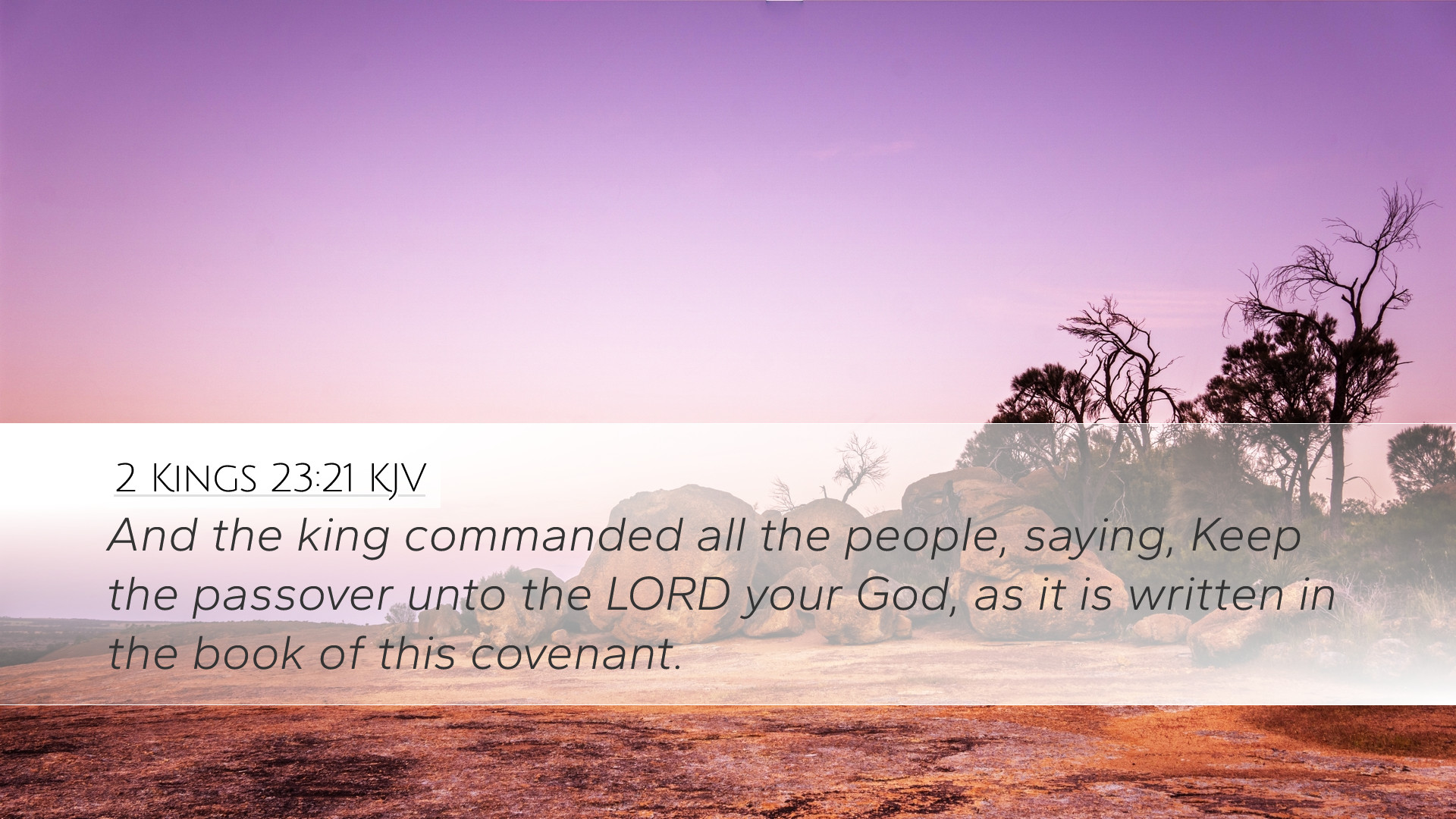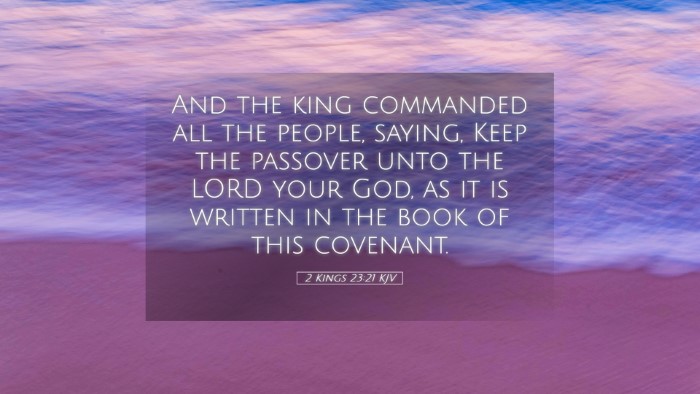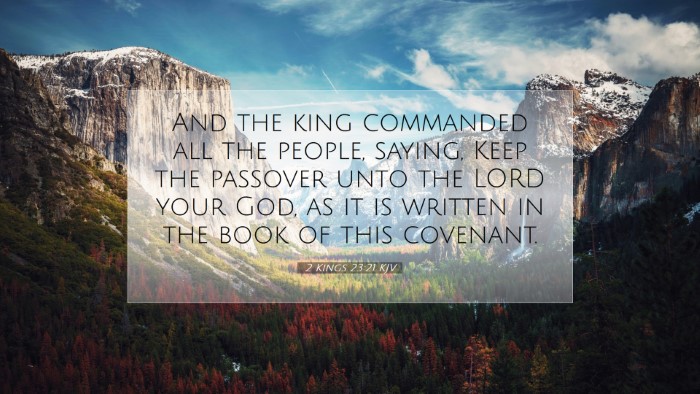Old Testament
Genesis Exodus Leviticus Numbers Deuteronomy Joshua Judges Ruth 1 Samuel 2 Samuel 1 Kings 2 Kings 1 Chronicles 2 Chronicles Ezra Nehemiah Esther Job Psalms Proverbs Ecclesiastes Song of Solomon Isaiah Jeremiah Lamentations Ezekiel Daniel Hosea Joel Amos Obadiah Jonah Micah Nahum Habakkuk Zephaniah Haggai Zechariah MalachiVerse
2 Kings 23:1 2 Kings 23:2 2 Kings 23:3 2 Kings 23:4 2 Kings 23:5 2 Kings 23:6 2 Kings 23:7 2 Kings 23:8 2 Kings 23:9 2 Kings 23:10 2 Kings 23:11 2 Kings 23:12 2 Kings 23:13 2 Kings 23:14 2 Kings 23:15 2 Kings 23:16 2 Kings 23:17 2 Kings 23:18 2 Kings 23:19 2 Kings 23:20 2 Kings 23:21 2 Kings 23:22 2 Kings 23:23 2 Kings 23:24 2 Kings 23:25 2 Kings 23:26 2 Kings 23:27 2 Kings 23:28 2 Kings 23:29 2 Kings 23:30 2 Kings 23:31 2 Kings 23:32 2 Kings 23:33 2 Kings 23:34 2 Kings 23:35 2 Kings 23:36 2 Kings 23:37

